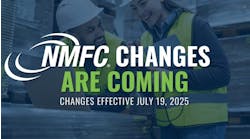You often hear that the various modules and tools within fleet and workforce management systems are beneficial. Verizon Connect is now looking to pinpoint what it means to a business' bottom line and operations if you do—or don't—use such a system and various extended functions it can include.
When it comes to these telematics and web-based systems and their range of tools, fleets and mobile workforce businesses tend to hear "a bit of, 'We think, we feel, we know it's the right thing to do,'" says Jay Jaffin, chief marketing officer at Verizon Connect. "But with the breadth of information we now have and analytic tools that we've got, we want to actually prove with data that yes, it does make an impact."
"We've got billions of data points every day coming off of millions of vehicles," he tells Fleet Owner. "There's so much information and insight in there to extract."
To hone in on and quantify business gains from using its particular products, Verizon Connect gathered data from 719 fleets of various types with a total of 27,347 vehicles using its fleet/ workforce management platform, comparing an initial control period with the first and second months following implementation.
The company has a sizeable team of data scientists compiling and carving up such information. In a first study release, Verizon Connect took averages from the fleets looking at several specific measures—harsh driving incidents, speeding, and truck idling. "Those are three metrics that rise to the top of any fleet manager's stack," Jaffin notes.
The idea is to start benchmarking what's going on with these fleets and give newly adopting customers a better expectation of where their targets should be.
Here's what Verizon Connect found:
—The fleets saved a good deal of fuel: they saw an average 29% reduction in idling in the first month and 55% reduction the second month.
—The study fleets had average increases of 71% and 153% in the first and second months, respectively, in miles driven without a speeding incident.
—On average, fleets saw a 12% reduction in harsh driving incidents in the first month and 39% reduction in the second month.
This next point shouldn't be surprising: the more a fleet engages in and uses the platform, the greater benefit it tends to get out of it, Verizon Connect finds.
"The more companies measure, the more improvement they see. In almost every case, more frequent reporting leads to significant improvement over time," the company states in its report. "These benefits also continue over time."
Finding the apples-to-apples
There's also a ripple effect, which is what can make implementing and allocating funds for a fleet management system or additional functionality tricky. Some of the most worthwhile tech investments for a fleet can mask the expenses and less-tangible items that will never be recorded, like vehicles that didn't break or customers who were never dissatisfied.
"These types of improvements will have impacts on customer satisfaction and on revenue by way of being able to complete more jobs in a day," Jaffin points out.
Trying to get at those improvements more meaningfully, Verizon Connect found there is a helpful measure: utilization. The company cites a 2017 study from research firm Aberdeen that found businesses using fleet and field service management software have 33% higher workforce utilization than those that don't use those tools.
"We're going to do more of this and drill into verticals so we can start to understand what's the range here—what are the best practices and benchmarks that I should be shooting for?" says Jaffin. "Now that we know it makes a difference, we want to understand how to get into a higher gear and optimize the impact to your business."
Check out the full report at www.verizonconnect.com/resources/ebook/data-driven-fleet.




